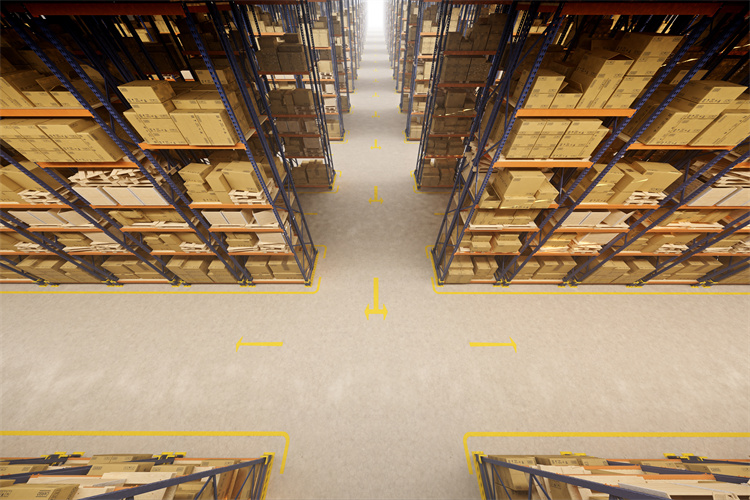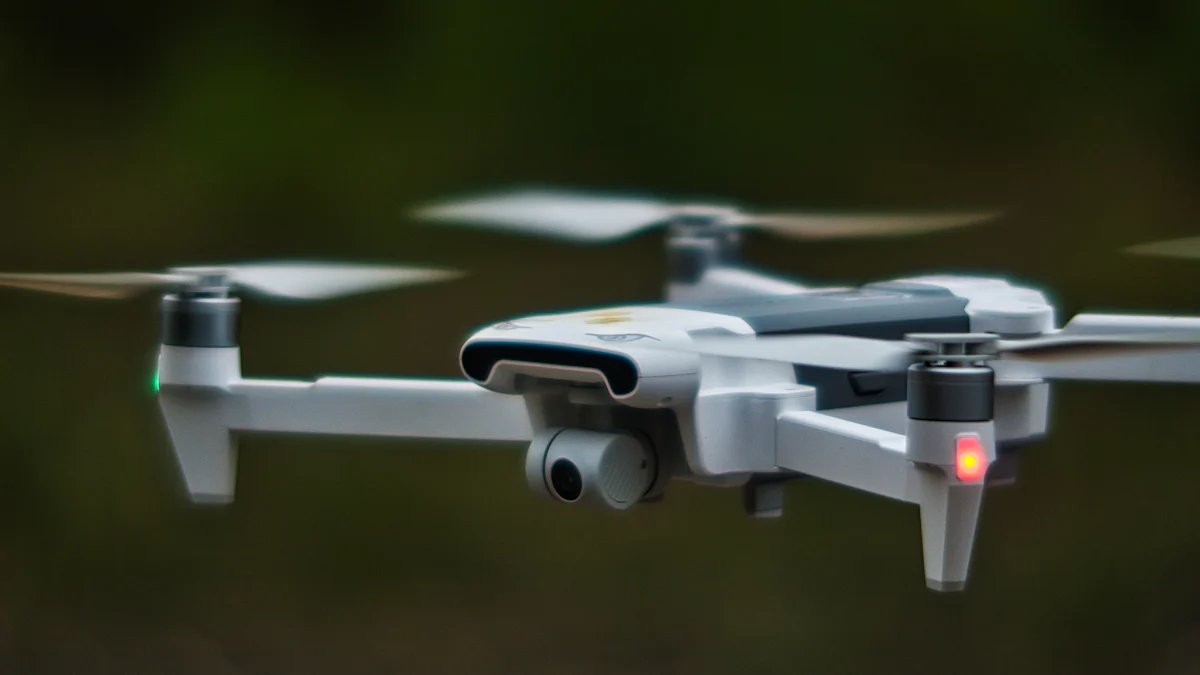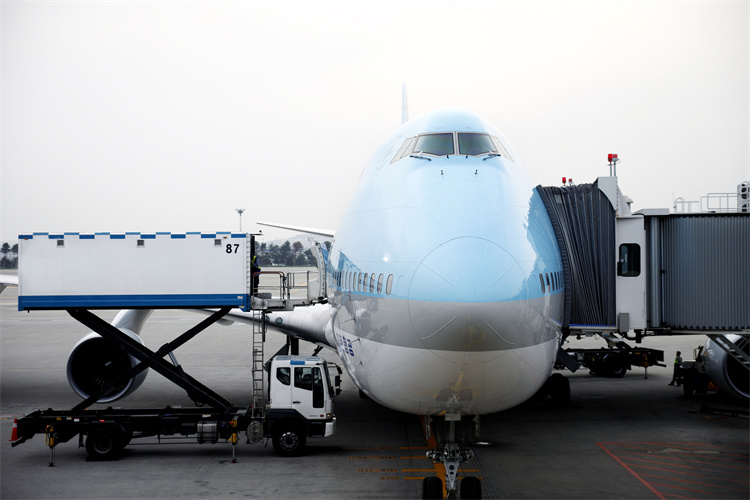Emerging Trends in Smart Technology for Air Freight

Smart technology plays a crucial role in transforming the air freight industry. Automation and AI improve efficiency and productivity. AI-powered tools optimize routes and reduce operational costs. The adoption of blockchain and IoT enhances transparency and security. Real-time tracking technologies provide updates on cargo location. Digitalization with electronic Air Waybills reduces paperwork. Robotics and automation in cargo handling improve safety. The integration of big data and AI enhances efficiency. Staying updated with these trends is essential for industry stakeholders.
Smart Technology in Autonomous Air Freight Forwarding

Drones in Air Freight
Current applications
Drones have become a significant part of air freight operations. Companies use drones for delivering small packages over short distances. This method reduces delivery time and enhances efficiency. Drones operate in areas where traditional vehicles face challenges. Urban environments benefit greatly from drone deliveries. Drones navigate through traffic congestion with ease. AI algorithms enable drones to make complex decisions in real time. These algorithms optimize resource management and improve security in cargo transportation.
Future potential
The future of drones in air freight holds immense potential. Drones could handle larger cargo loads in the coming years. Technological advancements will expand their operational range. AI and automation will further enhance drone capabilities. Drones may soon integrate with existing logistics networks. This integration will streamline the entire supply chain process. Drones will likely play a crucial role in last-mile delivery solutions. The air freight industry anticipates significant growth in drone usage.
AI and Machine Learning
Predictive analytics
AI and machine learning transform air freight operations. Predictive analytics plays a vital role in this transformation. AI analyzes historical data to forecast future trends. This analysis helps companies anticipate demand fluctuations. Predictive analytics improves inventory management and reduces waste. AI-driven insights enhance decision-making processes. Companies achieve greater efficiency and reliability through AI applications. AI and data analytics improve service quality in air freight operations.
Route optimization
Route optimization is another critical application of AI. AI-powered tools calculate the most efficient routes for cargo transportation. These tools consider various factors such as weather and traffic conditions. Route optimization reduces fuel consumption and operational costs. AI ensures timely deliveries by minimizing delays. The air freight industry benefits from increased productivity and cost-effectiveness. AI and automation revolutionize air cargo management. Smart technology continues to drive innovation in route optimization.
Digital Transformation in Air Freight

Digital over Paper
Electronic Air Waybills (e-AWB)
The air freight industry is embracing electronic Air Waybills (e-AWB) to replace traditional paper documents. This digital shift reduces paperwork and enhances data accuracy. Airlines and freight forwarders benefit from streamlined processes. The use of e-AWB improves operational efficiency. The transition to digital documentation supports environmental sustainability by reducing paper consumption. The International Air Transport Association (IATA) promotes the adoption of e-AWB globally. Many industry stakeholders recognize the advantages of digital documentation.
Blockchain for Secure Transactions
Blockchain technology offers secure transaction solutions in air freight. This technology ensures transparency and traceability in supply chain operations. Blockchain records transactions in a decentralized ledger, making data tamper-proof. The use of blockchain enhances trust among stakeholders. Companies can verify the authenticity of documents and transactions. Blockchain reduces fraud risks and improves data security. The air freight industry benefits from increased reliability and efficiency through blockchain integration.
IoT and Connectivity
Real-time Tracking
The Internet of Things (IoT) enables real-time tracking in air freight logistics. IoT devices provide continuous updates on cargo location and status. This technology enhances visibility throughout the supply chain. Real-time tracking reduces uncertainties in shipment delivery. Companies can monitor cargo conditions and respond to issues promptly. The use of IoT improves customer satisfaction by ensuring timely deliveries. The air freight industry experiences enhanced operational efficiency with IoT implementation.
Smart Sensors for Cargo Monitoring
Smart sensors play a crucial role in cargo monitoring within air freight. These sensors detect changes in temperature, humidity, and other environmental conditions. The use of smart sensors ensures optimal cargo conditions during transit. Companies can prevent spoilage and damage to sensitive goods. Smart sensors provide valuable data for improving supply chain management. The integration of smart sensors enhances safety and reliability in air freight operations. The industry continues to adopt advanced technologies for better cargo monitoring.
JUSDA's Role in Sustainable Technologies
Eco-friendly Aircraft
Fuel-efficient engines
JUSDA prioritizes eco-friendly solutions in air freight operations. The company focuses on fuel-efficient engines to reduce environmental impact. Advanced engine designs minimize fuel consumption. Reduced fuel usage leads to lower emissions. JUSDA's commitment to sustainability enhances operational efficiency. The air freight industry benefits from these advancements.
Use of alternative fuels
JUSDA explores alternative fuels for sustainable aviation. Biofuels and synthetic fuels offer greener options. These fuels reduce carbon emissions significantly. JUSDA supports the adoption of alternative fuels in air freight. The use of cleaner energy sources aligns with global sustainability goals. JUSDA's efforts contribute to a more sustainable future for air freight.
Green Logistics
Carbon footprint reduction
JUSDA leads in reducing the carbon footprint of logistics operations. The company incorporates rail transportation for cargo movements. Trains offer a greener alternative to traditional transport methods. Rail transportation reduces greenhouse gas emissions. JUSDA's green logistics practices promote environmental responsibility. The company sets an example for sustainable supply chain management.
Sustainable packaging solutions
JUSDA implements sustainable packaging solutions in logistics. Eco-friendly materials minimize waste and environmental impact. Packaging innovations ensure product safety during transit. JUSDA's sustainable packaging practices enhance brand reputation. Customers appreciate environmentally conscious business practices. The air freight industry moves towards more sustainable operations with JUSDA's leadership.

JUSDA Solutions
To provide you with professional solutions and quotations.
Smart technologies hold immense importance in air freight. These innovations enhance efficiency and reduce costs. Technologies like AI, IoT, and blockchain offer significant benefits. However, challenges such as high initial investments and resistance to change exist. Companies must address these hurdles for successful implementation. Industry stakeholders should embrace innovation for future growth. The adoption of smart technologies ensures competitiveness in the evolving market. Embracing these trends will lead to sustainable and efficient air freight operations.
See Also
Navigating Tomorrow: Logistics Revolutionized by Digital Innovation
Revolutionizing Logistics: Exploring Future Technology Advancements
Ready for Tomorrow? Discovering Cutting-Edge Transport Tech for Supply Chains
Artificial Intelligence in Supply Chain: Transforming Future Logistics
Enhancing Productivity: Innovations in AI Supply Chain Management
